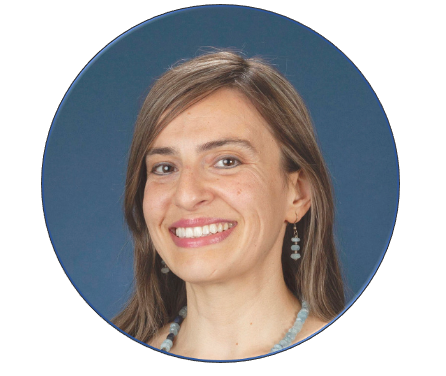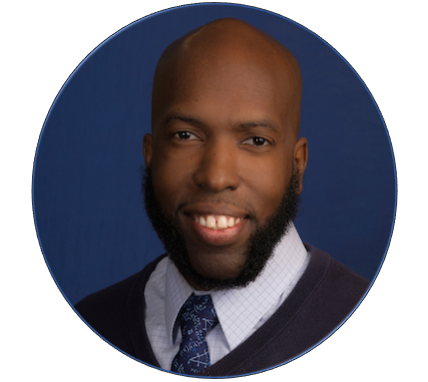Curricular Change for Transformational Impact
Posted in 2021 Panel Session | Tagged Curricular Change for Transformation
Three panels explore the questions of (3.1) How can trauma-informed strategies inform evidence-based practices and culturally inclusive pedagogies as norms? (3.2) How do we (re)center the curriculum as “sites for justice” for our students? and (3.3) What are the intersections between campus climate and the curriculum? In each of these three panels, participants examine how transformation needs to be addressed across curricular, interdisciplinary, and cross-campus work to bring healing into the heart of work around equity.
3.1 How can trauma-informed strategies inform evidence-based practices and culturally inclusive pedagogies as norms?
This session focused on how trauma can originate and spread through individuals and across time. Drawing from the influence trauma has on students, there is an urgent need to incorporate trauma-informed evidence-based practices. This panel also focuses on the psychological impact of trauma on students, and how it affects their views on relationships and sense of self.
Panelists

Dr. David Robinson-Morris
Founder & Chief
Reimaginelutionary
Dr. Mays Imad
Coordinator of Teaching & Learning Center and Professor of Genetics, Biotechnology, and Bioethics
Pima Community College

Ijeoma Njaka (meeting chair)
Senior Program Associate for Equity-Centered Design and Inclusive Pedagogy Specialist
Georgetown University
Presentation slides
- Think of Others (Imad)
- The Body Remembers What the Mind Longs to Forget (Robinson-Morris)
Resources
- https://native-land.ca/
- https://ssir.org/articles/entry/addressing_trauma_as_a_pathway_to_social_change
- https://pubmed.ncbi.nlm.nih.gov/31001926/
- Cozolino, L. J. (2013). The social neuroscience of education: Optimizing attachment and learning in the classroom. W.W. Norton & Company.
- https://www.researchgate.net/publication/328266874_Radical_Love_Revolutionary_Becoming_Creating_an_Ethic_of_Love_in_the_Realm_of_Education_Through_Buddhism_and_Ubuntu
- https://www.amazon.com/Ubuntu-Buddhism-Higher-Education-Ontological/dp/1138478652
- https://people.ucsc.edu/~nmitchel/sylvia.wynter_-_no.humans.allowed.pdf
- https://onbeing.org/programs/resmaa-menakem-notice-the-rage-notice-the-silence/
3.2 How do we (re)center the curriculum as “sites for justice” for our students?
This panel looks at the current practices colleges use to engage their students, and how many aspects of the current system can be detrimental to student flourishing. Panelists Roopika Risam looks at carceral approaches to pedagogy, while Desiree Forsythe discusses her approach to teaching actionable justice in STEM. Overall, the panel leaves us with an understanding of the need to change college practices: to improve student experience and impact on communities.
Panelists

Dr. Bryan Dewsbury
Associate Professor, Biology
University of Rhode Island
Desiree Forsythe
Education and outreach coordinator
PhD candidate
University of Rhode Island
Roopika Risam
Chair of Secondary and Higher Education and Associate Professor of Education and English
Salem State University
Susannah McGowan (panel chair)
Georgetown University
Resources
- Race After Technology
Ruha Benjamin - http://www.jeffreyarnett.com/ARNETT_Emerging_Adulthood_theory.pdf
- https://clas.osu.edu/sites/clas.osu.edu/files/Tuck%20and%20Yang%202012%20Decolonization%20is%20not%20a%20metaphor.pdf
- https://www.ciscoramos.com/teachingcontentiousissues/episode1 https://www.amazon.com/Righteous-Mind-Divided-Politics-Religion/dp/0307455777 https://instructionalcontinuity.georgetown.edu/resources/cndls-podcast/
3.3 What are the intersections between campus climate and the curriculum?
College campuses are starting to grapple with their on-campus climate and its intersections with an equitable college experience. Many colleges have begun to measure campus climate, following a push by undergraduate student leaders, and these surveys hope to show colleges how to change faculty practices and mindsets.
Panelists

Rosemary Kilkenny, Esq.
Vice President for Institutional Diversity and Equity
Georgetown University
Nyree Gray, J.D.
Associate Vice President and Chief Civil Rights Officer
Claremont McKenna College
Ulili Emore
(meeting chair)
Program Manager, Strategic Partnerships & East Mall Projects, Office of EVP & Provost
University of Texas at Austin
Resources
- Campus Cultural Climate Survey , Georgetown University
- Center for New Designs In Learning and Scholarship (CNDLS), Georgetown University
- Summer Hilltop Immersion Program (SHIP), Georgetown University
